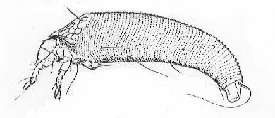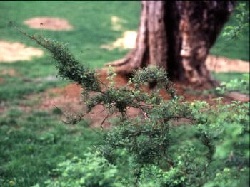| Above: multiple witches' brooms on a shrub rose. RRD was originally called "Witches' Broom of Roses". (Normal leaves on uninfected canes are in the lower right hand corner of the picture.) |

| Above: line drawing of the wingless microscopic mite 'Phyllocoptes fructiphilus' that carries the RRD pathogen. (Drawing by Keifer 1939). |
